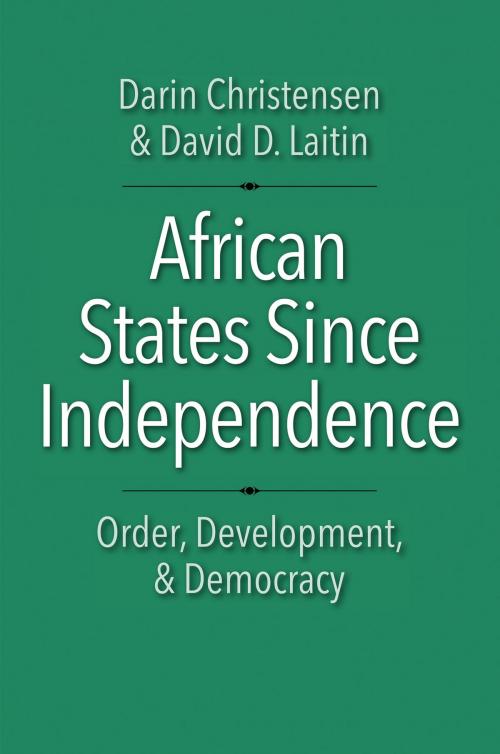African States since Independence
Order, Development, and Democracy
Nonfiction, History, Africa, Modern, 20th Century, Social & Cultural Studies, Political Science, International| Author: | Darin Christensen, David D. Laitin | ISBN: | 9780300244946 |
| Publisher: | Yale University Press | Publication: | May 28, 2019 |
| Imprint: | Yale University Press | Language: | English |
| Author: | Darin Christensen, David D. Laitin |
| ISBN: | 9780300244946 |
| Publisher: | Yale University Press |
| Publication: | May 28, 2019 |
| Imprint: | Yale University Press |
| Language: | English |
Authors Christensen and Laitin argue that an interplay of geographic, historical, and demographic factors undergird sub-Saharan states’ post-independence struggles to eradicate poverty, establish democratic accountability, and quell civil unrest. They set out the founding fathers’ challenges in transforming their postcolonial states, many of which are ethnically diverse, geographically diffuse, sparsely populated, and lacking in administrative capacity. With the legacies of the slave trade, partition, Christian missionaries, and extractive colonial institutions complicating their efforts, many African states faced stagnation, authoritarianism, and civil strife. Recent years have seen promising attempts to restore democracy to states under authoritarian rule and to liberalize their economies, suggesting that the region is moving toward a new era.
Relying on the best statistical data and richly illustrated with case material, this book is an indispensable source for scholars and policy analysts seeking to understand Africa’s post-independence political trajectories.
Authors Christensen and Laitin argue that an interplay of geographic, historical, and demographic factors undergird sub-Saharan states’ post-independence struggles to eradicate poverty, establish democratic accountability, and quell civil unrest. They set out the founding fathers’ challenges in transforming their postcolonial states, many of which are ethnically diverse, geographically diffuse, sparsely populated, and lacking in administrative capacity. With the legacies of the slave trade, partition, Christian missionaries, and extractive colonial institutions complicating their efforts, many African states faced stagnation, authoritarianism, and civil strife. Recent years have seen promising attempts to restore democracy to states under authoritarian rule and to liberalize their economies, suggesting that the region is moving toward a new era.
Relying on the best statistical data and richly illustrated with case material, this book is an indispensable source for scholars and policy analysts seeking to understand Africa’s post-independence political trajectories.















